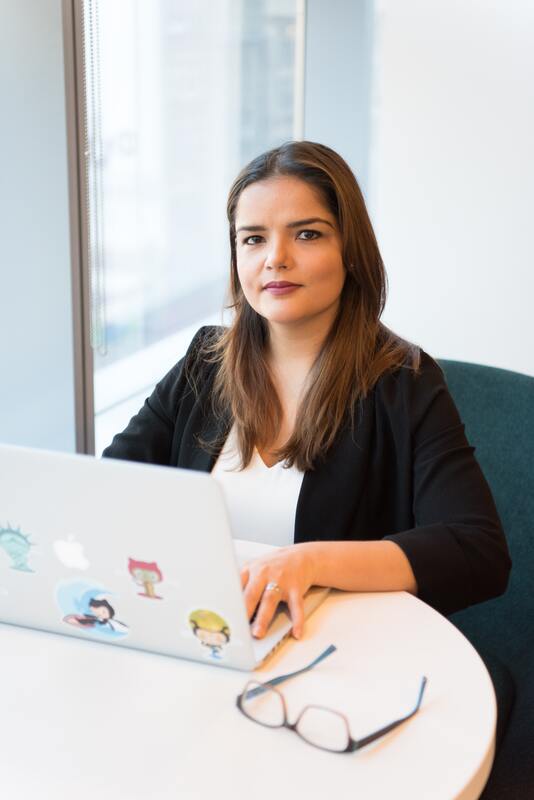|
As business begins to pick up momentum again, companies everywhere are looking for a fresh start. Many venture capital firms shop company websites and their online presence as the first steps for funding consideration. As you look to revamp your digital footprint, consider these five tips and tactics to get started.
Market your professionalism on your website Your website’s presentation will provide insight into how your business is conducted. Having clear information, a nice design or look and feel, and proper formatting play into the professionalism you convey. If you want investors to take your business seriously, make sure you’re showcasing a well-thought out and structured website to them. Showcase excellent branding and messaging Anyone looking at your website, including venture capital firms, will want to see on-point branding and product marketing. Important details to think about is your color scheme and font, product or service naming, and your content—including copy, videography, and any other content. Are you painting a clear picture of the product or service you’re providing? Is your branding on par with your mission and values? Are you telling your business’ story? Thinking through these and other related questions will help you create a visual story across your site. Easy lead conversion or purchasing process Make your site easy for your customer to use! Along with excellent professionalism, branding, and messaging, your site should be organized to easily convert leads or clients, or to sell your product. If you bury your purchase link on pages that are hard to find, you won’t easily sell your product. If you make it difficult for readers to find your contact information, they won’t be able to get in touch! Show your investors that not only is your site designed well, they can trust that it’s set up in a way to convert. Take advantage of your social media presence “If you didn’t tweet it, take a picture of it, or post it, it didn’t happen.” This is an accurate narrative of today’s relationship between people and social media, and its applicable to businesses, too. Social media has become somewhat of the digital Yellow Pages, and provides companies and customers mutual access to each other. Facebook can help you promote your business with its own Page, Twitter can help your business share its narrative, Instagram allows you to visually capture important moments, and so much more. To make an impactful point on social media, research each platform first to determine which ones are best for your business’ success. Strong paid media campaigns Investors want to know that the brand you’ve built is being sold to the right audiences. Paid media—like Google Search ads and Banner Display ads, lead the way of advertising. Having these types of campaigns are imperative to capturing the audience you’re wanting to build and then targeting them in a way to achieve conversion. If you haven’t explored paid media campaigns for your business, you can find a digital marketer or strategist that can help you get started. A great way to showcase your business is through its online presence, especially if you’re on the market for funding. There are free tools and resources online to help you revamp your digital footprint. Never be afraid to refresh!
1 Comment
 CLEVELAND, April 2, 2021 /PRNewswire/ -- S4 Medical moves a step closer in developing the most comprehensive solution to protect the esophagus from thermal injury during catheter ablation procedures for atrial fibrillation (AF) with the closing of their Series A financing. Three new shareholders – Jobs Ohio, Angel Physician Fund, and an unnamed strategic investor -- have come on board, along with existing investors, to help accelerate efforts towards commercialization. The Series A funding will be used primarily to conduct the company's Investigational Device Exemption study, which is estimated to begin in July 2021. The company has already achieved several important milestones including first-in-human testing, securing intellectual property, and demonstration of compatibility with electrophysiology systems. S4 Medical was cofounded by Dr. Emile Daoud of The Ohio State University, and William Fuller. The company's primary product is the esolution catheter – a patented device intended to safely deviate and protect the esophagus during catheter ablation for AF. Cofounder, Chief Medical Officer, coinventor of the device, and Electrophysiology Section Chief at The Ohio State University, Emile Daoud, MD, says: "We are thrilled at the closing of this investment and excited to begin our pivotal trials. If successful, the esolution device will be well received by electrophysiologists as an added benefit for managing patients undergoing AF ablation." Since its founding in late 2017, S4 has moved quickly and achieved significant milestones towards bringing the esolution device to market. "S4 offers a world-class solution to a big problem and a large market opportunity," says cofounder and CEO William Fuller. "Our existing and new investors see the promise of S4's solution and the possibility to provide additional safety to catheter ablation procedures." "We immediately recognized the value of S4's technology and are pleased to not only participate in this financing but also to support S4 as it goes into its clinical studies," says Manish Bhandari, MD, managing partner of the Angel Physician Fund of Cincinnati, which comes into the round with a wealth of clinical and entrepreneurial experience. S4 board member and managing director of the Columbus-based Ohio Innovation Fund (OIF), Bill Baumel, adds: "OIF confidently reinvests in S4 Medical and its mission of bringing cutting edge research to market – with the aim of making a huge positive impact on people's lives." "AF ablation is a large and fast-growing market," says Hardik Desai, senior partner at Jumpstart Inc, of Cleveland, Ohio, "and we're happy to support S4 as they enter the clinical phase towards commercialization to address this critical unmet need." Jumpstart, which focuses on early stage investing and has been involved with S4 from the start, also reinvested in the Series A round. About S4 S4 Medical Corp. is a medical device company focused on innovative solutions for cardiac procedures. The company's main focus is a simple, yet comprehensive solution for reducing complications to the esophagus during catheter ablation treatment for atrial fibrillation. S4's team is motivated by providing advanced solutions for superior healthcare. For more information, visit S4 at www.S4medical.com on LinkedIn and Twitter. Simply put, women are remarkable—especially in business. According to Hult International Business School, women represent economic power and offer consumer insight, accounting for 85% of consumer purchases. Identifying with this audience, women-owned businesses have increased 74% over the past 20 years—creating a new generation of women in leadership and C-Suite roles. Here’s five key lessons you can learn from women business owners and apply to your entrepreneurial success.
Sophia Amoruso, Founder of Nasty Gal and Girl Boss Media It all started on eBay in 2006, where Sophia Amoruso set up an online clothing shop selling vintage and local thrift store purchases. Her sales took off quickly, and she set up her own stand-alone brand for her loyal and frequent customers. The company continued to see great success, until 2016, when Amoruso filed for bankruptcy and sold the company to British online retailer Boohoo.com for $20 million. But that didn’t stop her hustle. Around the same time, Amoruso became a New York Times best-selling author for her book, #GirlBoss, which was developed into a Netflix series, and she now offers courses and resources for entrepreneurs and start-up owners who need assistance in building their businesses. Tory Burch, Founder of Tory Burch Tory Burch gained excellent work experience with top fashion brands, such as Ralph Lauren and Vera Wang, before starting her own line, Tory Burch, in 2004. Burch has seen great success with her brand, becoming a household name for fashion. However, she wanted to make sure her work didn’t go unnoticed—in a good way. Burch also founded the Breast Cancer Research Foundation, providing support to women and families with breast cancer, and spreading awareness about the disease. Don’t forget to give back. Tory Burch has taught us that regardless of how big your empire may become, philanthropic work is still important. Cashmere Nicole, Founder and CEO of Beautie Bakery Adversity didn’t stop Cashmere Nicole from reaching her dreams. From being a single mom at 16, to finishing school without much support, to being diagnosed with breast cancer early in her twenties, Nicole simply didn’t stop. She bought a website domain for her vegan-friendly beauty line at 27, and it took her years to finally see success. She tried different methods for her business, and influencer marketing was the best option. Now, her brand is sold in nearly 1,000 Ulta stores, often selling out. Her advice? Having a nearly 75% African American workforce in her company, she emphasizes the importance of diversity in the workplace. Also, put in the work—roll up your sleeves and get it done. Kathrin Hamm, Founder and CEO of Bearaby Kathrin Hamm’s great idea to sell heated, weighted blankets for improved sleep came to her while traveling as an Economist at the World Bank. She started her company in 2018, but what she didn’t realize was that two years later, a worldwide pandemic would increase the demand for her product dramatically. A waitlist of 44,000 blankets formed during the pandemic, forcing Hamm to assemble the resources to act quickly. So, she did, and in 2020, saw revenues approaching $21 million. What can we learn from Hamm? Preparation is key. Be ready and able to move swiftly when duty (or demand) calls! Melanie Perkins, Founder of Canva Australian technology entrepreneur Melanie Canva and her co-founder, Cliff Obrecht, founded Canva, a user-friendly online design tool, in 2007. Canva wasn’t an instant creation—the two learned many of their tools and tricks to business while creating Fusion Books, their first startup company. Today, Melanie Canva is one of the youngest female CEOs of a tech start up valued over $1 billion. What can we learn from Perkins? Start somewhere, iterate, and keep reinventing until you land on “it”. The ‘climb to the top’ isn’t an easy one—and that’s why it’s great to rely on the resources and advice from those that have paved the path. These women business owners are inspirational to everyone. |
Archives
March 2023
|


